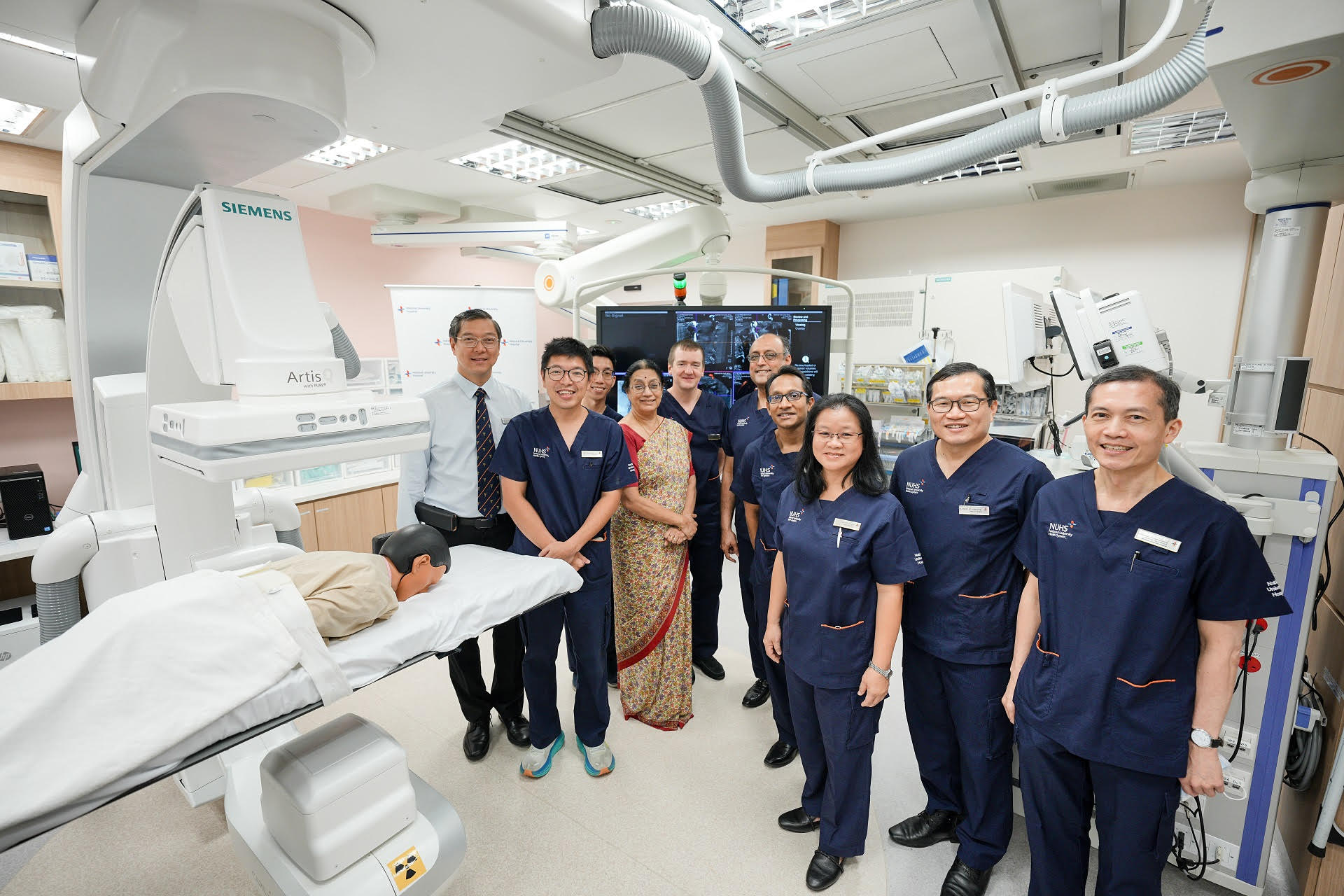The new National University Centre for Digestive Health (NUCD) rides
the artificial intelligence wave to enhance the early detection,
diagnosis, treatment and prevention of gastrointestinal-related diseases.
Issue 5 | June 2024

 Subscribe and ensure you don't miss the next issue!
Subscribe and ensure you don't miss the next issue!
Gastrointestinal (GI) cancers rank among the most prevalent cancers worldwide—accounting for one in four cancer cases and one in three cancer deaths.
In Singapore, GI cancers constitute one-third of male cancer cases and about one-fifth of females, according to the latest Annual Report from the Singapore Cancer Registry, with colorectal cancer emerging as the most common GI cancer in the city-state.
These diseases are also on the rise among the youth. One study indicated that rates of GI cancers in younger adults may be rising faster than other cancers. This uptick coincides with dietary shifts across many countries, with rising obesity rates and diets rich in processed foods—which upset the gut microbiome, the complex community of intestinal microbes intimately linked to GI cancers—as likely culprits.
Overcoming these formidable challenges requires some systems-level, out-of-the-box thinking. Harnessing innovative technology is one. To this end, the National University Hospital (NUH) is establishing the National University Centre for Digestive Health (NUCD) — expected to be operational by mid-2025. The use of artificial intelligence (AI) and advanced technology will be a major underpinning for the centre, spearheading efforts in research, clinical practices and the development of new technologies to enhance the early detection, diagnosis, treatment and prevention of GI-related illnesses.
Data-driven detection and diagnostics
“The new centre will be a one-stop shop for gastroenterology and hepatology services, where specialised care, from diagnostic to therapeutic procedures, is augmented by AI and other state-of-the-art technologies,” says Adjunct A/Prof Lee Guan Huei, Head and Senior Consultant, Division of Gastroenterology and Hepatology, Department of Medicine, NUH.
One of the areas in which the centre will provide significant value is the early identification of GI lesions. These abnormalities in stomach tissues may be a precursor to cancer, so detecting and diagnosing them earlier—and in real time—can translate to improved patient outcomes.
Three AI-powered systems—Computer-assisted detection (CADe), Computer-assisted diagnosis (CADx) and Computer-assisted quality control (CAQ)—work hand-in-hand to enable this medical capability. The Centre is the only one in Singapore to deploy these three systems simultaneously to boost diagnostic precision.
Improving the early detection of stomach and colorectal cancers is high on the centre’s radar. “Our team at NUH is jointly developing a blood-based diagnostic test for stomach cancer called GASTROClear, which identifies high-risk individuals while reducing the need for invasive endoscopies for those at low risk,” adds Adjunct A/Prof Lee. “We are looking into novel biomarkers to enhance colorectal cancer detection, as well as new assays for pancreas and liver cancers.”
Tech-enabled surgical interventions
Surgery at NUH is also undergoing a significant transformation—with technology at the forefront. Since August 2023, the NUH Endoscopy Centre has implemented a high-performance X-ray-based visualisation system, which harnesses 3D imaging to enhance the precision of surgical interventions. The clarity and depth provided by the technology enable surgeons to accurately pinpoint, address and remove diseased tissues, which are often challenging to discern with traditional 2D imaging. This not only slashes procedure times but optimises surgical outcomes.

Robots too are getting increasingly ‘hands-on’. Another practice-changing innovation is a robotic-assisted endoscopic surgery system that removes gastric and colon tumours through natural orifices, such as the mouth. This is a markedly less invasive approach whereby patients are more comfortable during the process and recover quicker. What is more, complication rates are lower—less than five per cent as demonstrated by clinical trials—and hospital stays are shortened to less than a day.
“The impact of integrating new technologies into our surgical practices cannot be overstated,” says A/Prof Asim Shabbir, Head & Senior Consultant, Department of Surgery, NUH. “From enhancing early detection and streamlining patient services to implementing more effective, less invasive intervention strategies, our goal is to meet the unique needs of our patients as we continue to expand our infrastructure and adopt new technologies.”
Like this article? Simply subscribe to make sure you don't miss the next issue of EnvisioningHealth!



















